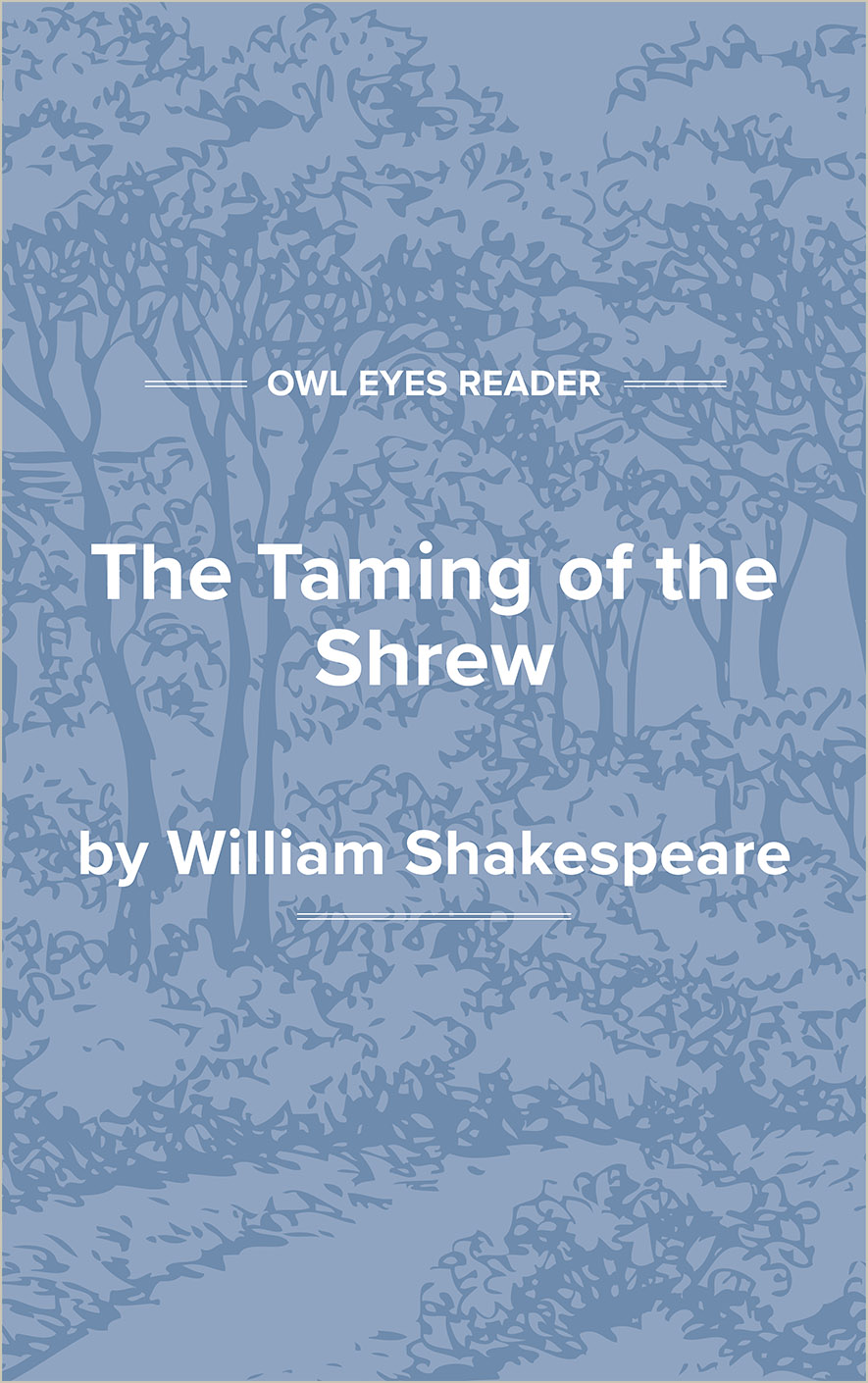Study Guide
Analysis Pages
Summary
As a joke, a beggar is carried, while asleep, to the house of a noble lord and there dressed in fine clothes and waited on by many servants. The beggar is told that he is a rich man who, in a demented state, has imagined himself to be a beggar, but who is now restored to his senses. The lord and his court have great sport with the poor fellow, to the extent of dressing a page to pose as the beggar’s rich and beautiful wife and presenting the supposed woman to him as his dutiful and obedient spouse. The beggar, in his stupidity, assumes his new role as though it were his own, and he and his lady settle down to watch a play prepared for their enjoyment.
Lucentio, a young man, and Tranio, his servant, have journeyed to Padua so that Lucentio can study in that ancient city. Tranio persuades his master that life is not all study and work and that he should find pleasures also in his new residence. On their arrival in the city, Lucentio and Tranio encounter Baptista and his daughters, Katharina and Bianca. These three are accompanied by Gremio and Hortensio, young gentlemen both in love with gentle Bianca. Baptista, however, will not permit his younger daughter to marry until someone takes Katharina off his hands. Although Katharina is wealthy and beautiful, she is such a shrew that no suitor will have her. Baptista, not knowing how to control his sharp-tongued daughter, announces that Gremio or Hortensio must find a husband for Katharina before either can woo Bianca. He charges them also to find tutors for the two girls, that they might be skilled in music and poetry.
Unobserved, Lucentio and Tranio witness this scene. At first sight, Lucentio also falls in love with Bianca, and he determines to have her for himself. His first act is to exchange clothes with Tranio, so that the servant appears to be the master. Lucentio then disguises himself as a tutor in order to woo Bianca without her father’s knowledge.
About the same time, Petruchio arrives in Padua. He is a rich and noble man of Verona, come to Padua to visit his friend Hortensio and to find for himself a rich wife. Hortensio tells Petruchio of his love for Bianca and of her father’s decree that she cannot marry until a husband is found for Katharina. Petruchio declares that the stories told about spirited Katharina are to his liking, particularly the account of her great wealth, and he expresses a desire to meet her. Hortensio proposes that Petruchio seek Katharina’s father and present his family’s name and history. Hortensio, meanwhile, plans to disguise himself as a tutor and thus plead his own cause with Bianca.
The situation grows confused. Lucentio is disguised as a tutor, and his servant, Tranio, is dressed as Lucentio. Hortensio is also disguised as a tutor. Petruchio is to ask for Katharina’s hand. Also, unknown to anyone but Katharina and Bianca, Bianca loves neither Gremio nor Hortensio and swears that she will never marry rather than accept one or the other as her husband.
Petruchio easily secures Baptista’s permission to marry his daughter Katharina, for the poor man is only too glad to have his older daughter finally wed. The courtship of Petruchio and Katharina is a strange one indeed, a battle of wits, words, and wills. Petruchio is determined to bend Katharina to his will, but Katharina scorns and berates him with a vicious tongue. Nevertheless, she has to obey her father’s wish and marry Petruchio, and the nuptial day is set. Then Gremio and Tranio, the latter still believed to be Lucentio, vie with each other for Baptista’s permission to marry Bianca. Tranio wins because he claims more gold and vaster lands than Gremio can declare. In the meantime, Hortensio and Lucentio, both disguised as tutors, woo Bianca.
As part of the process by which he seeks to tame Katharina, Petruchio arrives late for his wedding, and when he does appear he wears old and tattered clothes. Even during the wedding ceremony Petruchio acts like a madman, stamping,...
(The entire page is 1,119 words.)
Owl Eyes subscribers get unlimited access to our expert annotations, analyses, and study guides on your favorite texts. Master the classics for less than $5/month!

